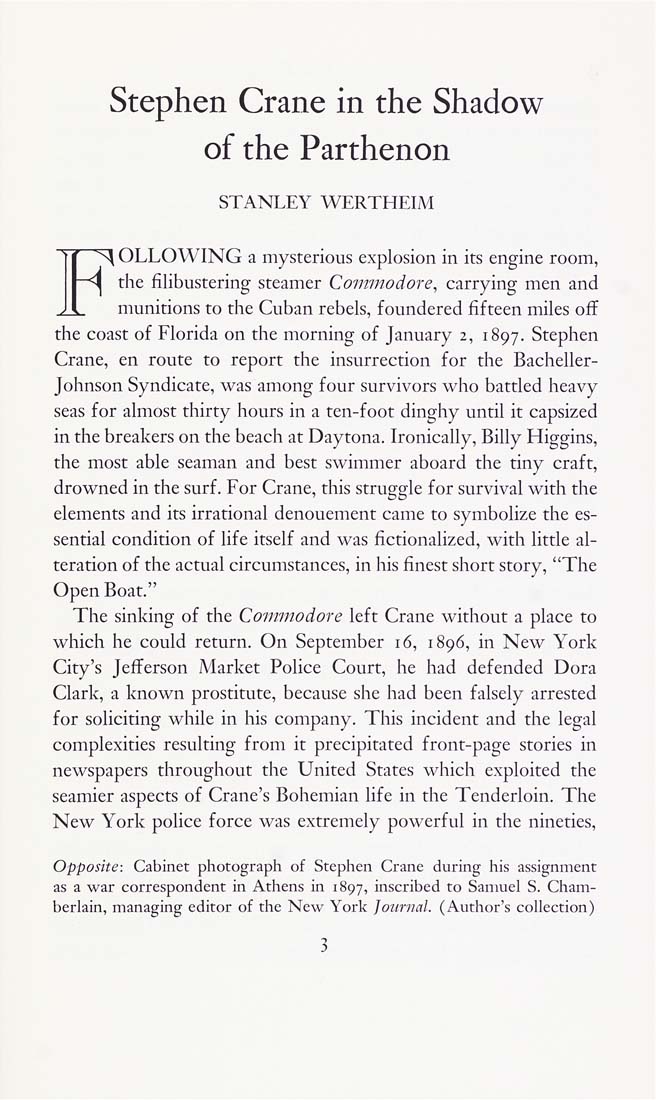Columbia Library columns (v.32(1982Nov-1983May))
(New York : Friends of the Columbia Libraries. )
|
||
|
|
|
|
| v.32,no.3(1983:May): Page 3 |

Stephen Crane in the Shadow of the Parthenon STANLEY WERTHEIM F ^ OLLOWING a mysterious explosion in its engine room, the filibustering steamer Commodore, carrying men and munitions to the Cuban rebels, foundered fifteen miles off the coast of Florida on the morning of January 2, 1897. Stephen Crane, en route to report the insurrection for the Bacheller- Johnson Syndicate, was among four survivors who battled heavy seas for almost thirty hours in a ten-foot dinghy until it capsized in the breakers on the beach at Daytona. Ironically, Billy Higgins, the most able seaman and best swimmer aboard the tiny craft, drowned in the surf. For Crane, this struggle for survival with the elements and its irrational denouement came to symbolize the es¬ sential condition of life itself and was fictionalized, with little al¬ teration of the actual circumstances, in his finest short story, "The Open Boat." The sinking of the Commodore left Crane without a place to which he could return. On September 16, 1896, in New York City's Jefferson Market Police Court, he had defended Dora Clark, a known prostitute, because she had been falsely arrested for soliciting while in his company. This incident and the legal complexities resulting from it precipitated front-page stories in newspapers throughout the United States which exploited the seamier aspects of Crane's Bohemian life in the Tenderloin. The New York police force was extremely powerful in the nineties. Opposite: Cabinet photograpii of Stephen Crane during his assignment as a war correspondent in Atliens in 1897, inscribed to Samuel S. Cham¬ berlain, managing editor of the New Yorli Journal. (Author's collection) |
| v.32,no.3(1983:May): Page 3 |







